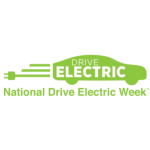
New Funding Available for Farms and Small Businesses
Luther College’s Center for Sustainable Communities and Winneshiek Energy District (WED) have received USDA funding to provide energy audits to small businesses and agricultural producers in NE Iowa and SE Minnesota.
WED and Luther College will be working with the Dubuque County Energy District to help implement the program in Dubuque County.
The grant funding provided by USDA’s Rural Energy for America Program (REAP) significantly reduces the cost of a high-quality energy audit.
“This is a great opportunity for our area businesses and farmers to receive a quality energy assessment at a much-reduced rate,” said Jim Martin-Schramm, Director of Luther’s Center for Sustainable Communities.
The grant support is especially valuable because Black Hills Energy and Alliant Energy recently discontinued their small business energy assessment programs. In addition, many municipal utilities don’t have incentives available to assist with the cost of an energy audit.
The energy audits for farms and businesses identify cost-effective energy efficiency measures and can also include other clean energy opportunities like solar power. They include detailed implementation plans developed in consultation with the participants based on their goals and priorities.
The plans are conducted to a standard that allows businesses and farms to apply for REAP grants and will qualify farmers for EQIP cost-share. They will also identify additional financial assistance opportunities such as utility rebates or solar tax incentives.
Virtually every farm and business has real opportunities to pursue clean energy prosperity in their operation and community. The project partners will work with participants and others to share success stories and to arrange brief open houses and/or clean energy tours.
If you are a small business or ag producer that wants to get a handle on your energy expenses, lead by example, and help your peers and community, contact Dubuque County Energy District board member Jacob Lucas: jacob.lucas1026@gmail.com or 563-845-3963. WED Lead Energy Planner Joel Zook can be reached at 563-380-7137 or joel@energydistrict.org.
Eligibility
The program is open to small businesses and agricultural producers in the following counties:
- Fillmore and Houston Counties in Minnesota
- Howard, Winneshiek, Allamakee, Fayette, Clayton, Delaware, Jones, and Jackson Counties in Iowa
- Dubuque County, Iowa, excluding the Dubuque metro area
The capacity of the program is limited by funding. Applications will be evaluated as they are received, with input from WED and other local partners. Participants interested in completing clean energy projects and willing to participate in clean energy outreach activities are especially encouraged to apply.
FAQs/Key Points
- All of the counties listed above, except the metro portion of Dubuque, meet the definition of “rural”.
- “Small businesses” can be quite large and still qualify. The Small Business Administration generally defines a “small business” as one with under 500 employees – some industries are allowed a larger cap. Final eligibility will be determined during the application process.
- Unfortunately, public bodies, non-profits, and residences are not eligible.
Estimated Costs to Participants
The program serves a wide range of business types and sizes. Participant cost-share will vary based on the type and size of business or farm. The program is designed to meet high standards. As a result, each energy audit will be as comprehensive as possible.
Out of pocket costs for small businesses will be $250; for larger commercial customers (over 20,000 square feet in size OR $20,000 in total annual energy cost) the costs will range from $500 – $750.
The out of pocket cost to a small agricultural producer will be around $600 – $800, with a higher cost for larger farms or dairies that take a good deal more work to assess. At the upper end, a large dairy (over 500 cows) would be approximately $1,000.
Process During COVID-19
The program is currently in the outreach and signup phase. Site visits will be arranged when conditions permit. Ideal candidates are farms and small businesses with a clear intention to implement projects and a willingness to collaborate with the project partners on outreach about their successful implementation and results. The audit process can begin remotely with the collection of farm/business information and utility data.

 Previous Post
Previous Post Next Post
Next Post